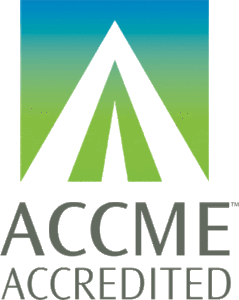| Emergency Medicine and Infectious Diseases: Current Issues and Common Challenges |
| Mon Jun 19, 2023 - Thu Jun 22, 2023 |
| 7:30am-12:50pm EST |
| Lido Beach Resort, Sarasota, Florida |
| SEMLA-3720230619 |
|

Live Webinar Access Information
Webinars are held via zoom and the Wednesday prior to the conference start date, an email will be sent with the zoom link.
Presented By
Presenter
-
Joel Kravitz (Learn More)

Associate Residency Director Rutgers-CMC EM Residency Program, Toms River, NJ -
Valerianna Amorosa (Learn More)

Professor of Clinical Medicine, Perelman School of Medicine at the University of Pennsylvania; She practices inpatient and outpatient medicine at Penn and the Philadelphia VA. She is medical director of Penn home infusion therapy and home health -
David Lane MD (Learn More)

Medical Director, Department of Emergency Medicine, Osceola Regional Medical Center; Chairman, University of Central Florida College of Medicine/HCA GME, Consortium Emergency Medicine Residency of Greater Orlando
Course Outline
Day 1
Facial Trauma (Kravitz)
Upon completion of this session, the participant should be able to: COMP
- Perform both a rapid screen and a thorough evaluation of the patient with facial trauma.
- Outline the challenges in securing an airway in the patient with facial trauma.
- Describe the indication for different imaging procedures for facial trauma.
- Manage injuries to the soft tissues of the face (lips, tongue, eyelids…).
Drug-Drug Interactions (DDIs) (Kravitz)
Upon completion of this session, the participant should be able to: COMP, GL
- Assess the scope of the problem of drug-drug interactions as it pertains to both the outpatient and emergency settings.
- Explore interactions between prescription and non-prescription medications and review their treatments in the context of the Beers Criteria.
- Review common drug-drug interactions and their complications commonly seen in the emergency room.
Neuromuscular Weakness (Kravitz)
Upon completion of this session, the participant should be able to: COMP
- Discriminate between various clinical entities causing neuromuscular weakness, including Guillain-Barré syndrome, myasthenia gravis, and others.
- Demonstrate techniques to be able to discriminate between organic and functional weakness.
- Compare and contrast upper and lower motor neuron disease.
Influenza, COVID-19 and Pandemics (Amorosa)
Upon completion of this session, the participant should be able to: GL, EBM, COMP
- Appraise COVID-19 Diagnostic testing.
- Understand current inpatient and outpatient treatment and management strategies for COVID-19.
- COVID-19 and influenza vaccine review.
Community Acquired Pneumonia, Respiratory Tract Infections, Acute Pharyngitis and Sinusitis (Amorosa)
Upon completion of this session, the participant should be able to: GL, COMP
- Appraise the epidemiology of community acquired pneumonia.
- Construct the differential diagnosis and employ specific management when making the diagnosis of community acquired pneumonia.
- Appraise the rising incidence of resistance and utilize alternative therapies when indicated.
- Determine the role of antibiotics in bronchitis.
- Recognize the rationale for antibiotic guidelines.
- Determine the features and predictors that guide your diagnostic testing of acute pharyngitis.
- Apply the best courses of treatment and overall management based on pharyngitis treatment guidelines.
- Develop a framework for treatment and antibiotic prescribing for acute sinusitis.
Day 2
Approach to the Patient with Fever and Rash (Amorosa)
Upon completion of this session, the participant should be able to: COMP
- Describe the etiology of commonly seen infectious and non-infectious rashes that are associated with fever.
- Develop a differential diagnosis based upon the type of rash on presentation.
- Recognize the scenarios in which emergent treatment of fever/rash are warranted.
Soft Tissue and Bone Infections (Amorosa)
Upon completion of this session, the participant should be able to: GL, EBM, COMP
- Construct an approach to making the diagnosis of common skin and soft tissue infections.
- Assess common infections to include streptococcal and staphylococcal infections and necrotizing fasciitis, diabetic foot infections, bite wound infections and bone and joint infections.
- Apply appropriate treatment and management of these commonly seen infections and decide when specialist referral is indicated as per the current IDSA Guidelines for skin and soft tissue infections.
Ophthalmologic Emergencies (Kravitz)
Upon completion of this session, the participant should be able to: COMP, GL
- Develop an algorithm for the differential diagnosis of the red eye.
- Create a diagnostic strategy for sudden monocular and binocular blindness.
- Review the treatment plans for emergent ophthalmic conditions, including glaucoma, and retinal vein and artery occlusions as per the American Academy of Ophthalmology preferred practice pattern guidelines.
- Develop a treatment strategy for ophthalmic trauma.
Trauma and Orthopedic Pitfalls – Injuries Not to Be Missed (Kravitz)
Upon completion of this session, the participant should be able to: COMP
- Detect subtle injuries that, unless treated, can have impact on long term musculoskeletal function.
- Determine and treat subtle presentation of severe traumatic and neurologic injuries.
- Distinguish particular injury patterns to avoid missing correlated injuries in a traumatically injured patient.
Endocrine Emergencies (Kravitz)
Upon completion of this session, the participant should be able to: COMP, GL
- Develop, using the latest evidence and the ADA position statement, a comprehensive treatment plan for diabetic ketoacidosis (DKA).
- Compare and contrast DKA and hyperosmolar non-ketotic states (HHNK).
- Detect adrenal insufficiency and formulate an efficient treatment plan.
- Construct treatment algorithms as per the AACE guidelines, for the management of thyrotoxicosis, hyperthyroidism and thyroid storm.
Day 3
Is This Test Necessary: Efficient Use of Testing in the Emergency Department (Kravitz)
Upon completion of this session, the participant should be able to: GL, COMP
- Develop, using the available evidence, efficient decision-making skills for the use of some commonly used lab & radiographic tests in the ED as per the COC guidance and recommendations.
- Determine the utility of some less commonly used tests in the ED, including strep tests, D-dimers and coagulation tests.
- Evaluate case scenarios to discuss optimizing patient care while reducing unnecessary costs.
Management of the Emergency Psychiatric Patient (Kravitz)
Upon completion of this session, the participant should be able to: GL, COMP
- Recognize the early signs of agitation and employ strategies to resolve them.
- Select appropriate agents for chemical restraint based on available evidence.
- Using ACEP guidelines as a framework, develop a plan for the medical clearance of a psychiatric patient.
A Walk in the Woods: Ticks and Tickborne Illness (Lane)
Upon completion of this session, the participant should be able to: EBM, COMP
- Explore tick types, distribution, life cycles and their interaction with mammals.
- Determine the management of a patient with a recent tick bite.
- Review and understand the many tick-borne illnesses and treatment approaches using evidence-based medicine.
- Discuss the long-term ramifications of tick-borne illnesses.
Anemia Top Ten (Lane)
Upon completion of this session, the participant should be able to: COMP
- Understand the terminology and definitions of anemia.
- Distinguish the different types of anemia.
- Examine the dynamic decision on transfusion.
- Be prepared for the transfusion discussion with patients and family members.
Hypertensive Emergencies (Lane)
Upon completion of this session, the participant should be able to: EBM, GL, COMP
- Define both Hypertensive Urgency and Hypertensive Emergency.
- Review the impact of end-organ and potential outcomes.
- Understand the medical management of hypertensive emergencies using evidence-based medicine.
- Discuss admission criteria using current guidelines.
- Explore an approach to asymptomatic hypertension.
Day 4
Asthma Update (Lane)
Upon completion of this session, the participant should be able to: GL, COMP
- Understand severity determination and definitions.
- Understand the testing options and their value in different circumstances.
- Design a standard treatment plan for mild to moderate severity asthma using current guidelines.
- Know the supplemental options for severe asthma exacerbation.
- Review admission indications and discharge planning.
EM Speed Training + Against Medical Advice (Lane)
Upon completion of this session, the participant should be able to: COMP
- Recognize strategies for accelerating patient care in an Urgent Care or Emergency Department setting.
- Be the Clinician you would want for your family.
- Discuss speed strategies for special circumstances.
- Define the challenges of patients leaving Against Medical Advice.
- Provide strategies to navigate the AMA discharge.
- Highlight and discuss common physician concerns regarding AMA.
UTI and Pyelonephritis (Lane)
Upon completion of this session, the participant should be able to: EBM, COMP
- Define Simple vs. Complicated UTI and Pyelonephritis
- Review the epidemiology, risk factors, and microbiology related to both UTI and Pyelonephritis.
- Understand the spectrum of clinical presentation for both UTI and Pyelonephritis.
- Recognize the available diagnostic tools used in the evaluation of UTI and Pyelonephritis
- Design an effective treatment approach for both UTI and Pyelonephritis.
Abdominal Pain – The Black Box of the Belly (Kravitz)
Upon completion of this session, the participant should be able to: COMP, GL
- Review some challenging cases of abdominal pain to help differentiate benign from severe abdominal pain.
- Evaluate the utility of various tests, including labs, ultrasound and CT scan, including during pregnancy using the ACOG opinion guidelines, in the diagnosis of abdominal pain.
- Determine subtle features of certain presentations of abdominal pain that suggest a more severe cause.
- Explore diagnoses of abdominal pain in the absence of abdominal pathology.
Coagulopathy in the ER: All Bleeding Stops Eventually (Kravitz)
Upon completion of this session, the participant should be able to: COMP, EBM
- Differentiate different patterns of coagulopathy that present to the ED.
- Develop an evaluation and treatment plan for non-traumatic bleeding disorders in the ED, including hemophilia, TTP, ITP and others.
- Outline the rationale and indications for the use of blood products used in the treatment of the bleeding patient.
- Discuss some of the newer anticoagulation agents used today, such as Prasugrel (Effient) and Dabigatran (Pradaxa), as per thr referenced RCT’s and EBM studies such as Rocket, RE-LY and Einstein.
Accreditation
AMA
American Medical Seminars, Inc. designates this live activity for a maximum of 20 AMA PRA Category 1 Credits™. Physicians should claim only the credit commensurate with the extent of their participation in the activity.
AAFP
The AAFP has reviewed Emergency Medicine and Infectious Diseases: Current Issues and Common Challenges and deemed it acceptable for up to 20.00 Live AAFP Prescribed credits. Term of Approval is from 06/19/2023 to 06/22/2023. Physicians should claim only the credit commensurate with the extent of their participation in the activity.
Accreditation Statement
 American Medical Seminars, Inc. is accredited by the Accreditation Council for Continuing Medical Education (ACCME) to provide continuing medical education for physicians.
American Medical Seminars, Inc. is accredited by the Accreditation Council for Continuing Medical Education (ACCME) to provide continuing medical education for physicians.
Venue
Lido Beach Resort, Sarasota
Florida
34236
United States

Beautifully situated upon a private white sand beach near Siesta Key, the Lido Beach Resort is the perfect destination to experience the relaxed culture and natural beauty of Florida’s Gulf Coast. Our Sarasota luxury resort invites you to kick back and take in the picturesque views from our 300-foot white sand beach, enjoy a refreshing swim in our two year-round heated pools (one for families and one for adults only), and indulge with an array of resort amenities ideal for romantic weekends, family vacations and relaxing Gulf-front getaways.
Accommodations
Hotel Reservation Link
To arrange your stay, please use the above “Hotel Reservation Link.”
The special room rate will be available on a first come first serve basis until the group block is sold-out.
-
-
- Register by May 18, 2023 to take advantage of preferred rates.
- Save $9 on reduced resort fee. Reduced from $29 to $20 per room, per day.
- Free self-parking for AMS guests.
- Automatic raffle entry with registration.
-
Rent a Car with Enterprise or National:
To book your CME conference car rental and to receive special rates exclusively for AMS attendees, you may call or book online with our contracted companies, Enterprise/National
Things To Do
Immerse Yourself In Sarasota
Let us help with your area attractions and things to do. As one of the top family vacation destinations in America, Sarasota is renowned for its cultural and environmental amenities. Not only are we home to the #2 beach in the United States as voted by TripAdvisor in 2022, but Sarasota is a mecca for patrons of the arts and has the highest concentration of Zagat® rated restaurants in Florida. It’s no wonder Sarasota was ranked one of the Top 100 Best Places to Visit in Florida in 2022 by US News and World Report.
Sarasota offers a truly impressive blend of leisure, shopping, remarkable cuisine and popular attractions. As Florida’s cultural capital, you can’t go wrong with our museums, plays, symphony, or Sarasota’s very own opera house.
So sail into a breathtaking sunset, golf on lush green fairways, explore unspoiled fishing waters or just relax and sink your toes into the finest beach sands in the world.
If you’re not grabbing your sunblock already, keep reading about all that Sarasota has to offer.
Sarasota Beaches
With numerous beaches to choose from, the most notable being Siesta Key Beach with its quartz crystal, powdered sugar white sand. For those who prefer to go shelling, try out Lido Key or take a short drive to Venice Beach to hunt for fossilized shark’s teeth.

Area Attractions
From aquariums to a spring training baseball game and botanical gardens to airboat tours of gators in their natural habitat, there is something for everyone! Make sure you check out the events calendar for annual traditions including our very own Chalk Festival and the Siesta Key Master Sand Sculpture Contest.

Dining
Whether you prefer fine dining, beachfront or lighter fare, Sarasota has the highest concentration of Zagat® rated restaurants in Florida. Our award-winning dining overlooks world-class beaches, and stunning skylines, and fills downtown Sarasota. Many offer outdoor dining that can be enjoyed year-round!

Arts & Culture
The historical John and Mable Ringling Museum of Arts is the state art museum of Florida. These palatial grounds are home to a world-renowned collection of Rubens, the Circus Museum, Ca’d’Zan, Ringling’s Mansion, and Bayfront Gardens. You will also find the historic Asolo Theater on the premises. But that’s not all, Sarasota’s performing arts rival those of much larger cities.

Sports & Outdoor Activities
Voted as 2014’s Best Sport Friendly Vacations Destination by Sports Events Magazine, Sarasota and the surrounding area has over 25 golf courses, a world-class aquatics, and rowing facility, and one of the largest polo clubs in the country! Whether paddle boarding in the Sarasota Bay or running the Legacy Trail, you’re sure to find something that gets your heart racing!

Shopping
Whatever your shopping preferences are, Sarasota has something to suit your needs. Spend the afternoon in historical St. Armand’s Circle, visit the Ellenton Outlet Mall just 20 minutes North or enjoy our newest addition- the high-end shops of University Town Center (more than 100 stores).

AMS Cancellation Policy: American Medical Seminars has implemented a Worry-Free Cancellation policy. Written cancellations received 30 or more days prior to the conference start date will be eligible for a full refund of the registration fee paid. Cancellations received less than 30 days, please send an email to mail@ams4cme.com asking to be switched to a future conference. We are happy to transfer you to any conference scheduled to take place within the next two years. Even if you are not yet sure which conference you wish to attend. If you are an international attendee and need to cancel the seminar after an Invitation Letter has been sent, there is a $150.00 cancellation fee.
Disclaimer: In the event that AMS is required to cancel a live conference, registrants will receive a full refund within 7 business days. AMS is not responsible for charges associated with cancelled flights or hotel rooms.



